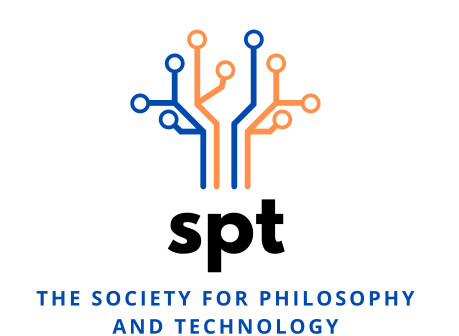About SPT
The Society for Philosophy and Technology is an independent international organization, founded in 1976, that exists in order to :
- Frame technology as an essential aspect of human experience and object of philosophical inquiry, based on a tradition in philosophy of technology.
- Contribute to the thriving of philosophy of technology as a field by :
- supporting academic and societal recognition for philosophy of technology and scholars who do work in philosophy of technology;
- cultivating a vibrant community for philosophy of technology scholarship;
- supporting careers for those doing philosophy of technology through managing publication fora and other venues that provide recognized academic merits;
- promoting excellent education in philosophy of technology;
- welcoming diverse perspectives into the field.
- Facilitate effective interactions between the philosophy of technology community and
- intellectual allies in the academy;
- those involved in decisions regarding shaping of technology;
- the general public (including through media).
- In pursuing its vision, the Society always adheres to its values of:
- Inclusivity
- Relevance
- Community
- Interdisciplinarity
- Scholarship
The Society convenes its own international conference biennially; our 2019 conference was held in Texas A&M, College Station; our 22nd SPT conference was held in Lille, France, at June 28 to 30, 2021; and the next conference will take place in Tokyo on June 7 to 10, 2023.
The Society publishes Techné, a scientific journal that appears three times a year and serves the need for sustained philosophical reflection on our technological world. The journal is devoted to the philosophical analysis of technological systems and to reflections on the art, craft, science and engineering of making things and getting things done in the world.
Membership to SPT is open to individuals whose work is in keeping with the interests of the Society – including scholars with an advanced degree (typically but not necessarily in philosophy), professionals in technological fields, and students whose work includes philosophically significant considerations of technology.
